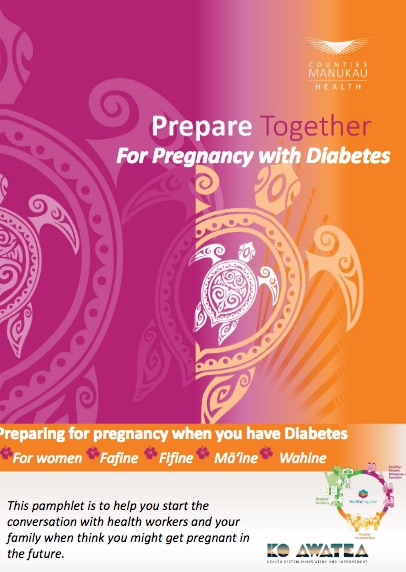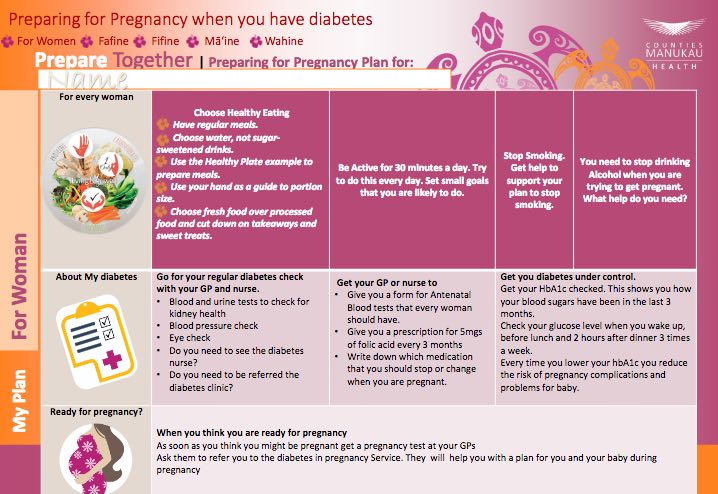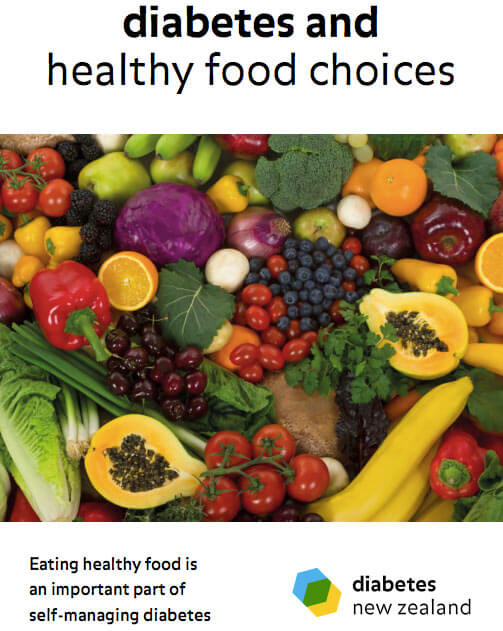You can now add Healthify as a preferred source on Google. Click here to see us when you search Google.
Diabetes – (pre-existing) and pregnancy
What you need to know about pregnancy if you have diabetes
Key points about pre-existing diabetes and pregnancy
- If you have diabetes, it can affect all stages of pregnancy from conception to delivery.
- If you have diabetes before pregnancy you are at greater risk of complications.
- However, if you maintain healthy blood glucose levels before and during your pregnancy, you have a good chance of delivering a healthy baby.

This page focuses on pregnancy when you already had diabetes before getting pregnant. There is also a condition called gestational diabetes, which is when you develop diabetes during a pregnancy. Read about diabetes that develops during pregnancy.

Image credit: Canva
- Pre-existing diabetes means you have diabetes before you get pregnant. This is different from gestational diabetes which is a kind of diabetes that some women get during pregnancy.
- Most women with diabetes before pregnancy will have a safe pregnancy and a healthy baby but will need extra care.
- Women who have diabetes before pregnancy are at increased risk of pregnancy complications.
- The higher your blood glucose level, the higher the risk of complications.
- Having good control of your blood glucose levels before pregnancy is the best way to decrease the risk of these complications.
Diabetes can cause problems in pregnancy for both you and your baby.
Risks to your health
If you have type 1 or type 2 diabetes, you may be at higher risk of:
- having a very large baby – which increases the risk of a difficult birth
- having your labour induced or needing a caesarean section
- having a miscarriage
- developing high blood pressure and pre-eclampsia
- gum disease, bladder and other infections.
Pregnancy also increases your blood glucose and this makes your diabetes more difficult to control. If you already have eye, kidney, heart or nerve problems, pregnancy can make these worse.
Risks to your baby's health
The most common problems for babies born to mothers with pre-existing diabetes are:
- being born early
- having breathing problems or low blood glucose levels after birth
- being admitted to a special care baby unit.
Your baby is also at a higher risk of some uncommon but serious problems such as:
- being born with birth defects, particularly affecting the heart, kidney or spine
- being stillborn
- being born very early
- having a very difficult birth from being a very large baby (eg, the baby's shoulders can get stuck in the birth canal called shoulder dystocia).
Managing your diabetes well before and during your pregnancy definitely helps to reduce these risks.
The best way to reduce the risks to you and your baby is to ensure your diabetes is well controlled before you become pregnant. Let your healthcare provider or diabetes specialist know 3–6 months before you start trying for a baby. They can refer you to a diabetes clinic for pre-pregnancy counselling and support. Pre-pregnancy counselling and planning have been shown to reduce the risk of poor outcomes.
Your blood glucose levels need to be closely monitored. You should be offered a blood test (HbA1c) every month. This measures the level of glucose in your blood. Continue using contraception and delay getting pregnant until your blood glucose is well controlled (HbA1c is under 48 mmol/mol or your personal target is met). However, not everybody can plan their pregnancy. If you have diabetes and think you might be pregnant, see your doctor as soon as you can.
Your healthcare team will review your medicines. If you are taking sulphonylurea to control your diabetes, this is likely to be stopped and replaced with insulin. Medicines such as statins or ACE inhibitors will also be stopped as they may cause harm to the development of your baby.
Folic acid
Women with diabetes should take a higher dose of 5 milligrams (mg) of folic acid each day while trying to get pregnant and until you are 12 weeks pregnant. Your doctor will have to prescribe this, as 5mg tablets are not available over-the-counter at the pharmacy.
Taking folic acid helps to prevent your baby from developing birth defects, such as spina bifida.(external link) Your doctor will also prescribe iodine 150 micrograms daily for you to take.
Other things you can do
- Eat a healthy balanced diet as guided by your dietitian.
- Stay active – aim for at least 30 minutes of exercise, such as walking or swimming, 5 or more days each week.
- Aim for a healthy body weight.
- Avoid alcohol, smoking and recreational drugs.
- Make sure your vaccinations are up to date.
- Visit your dentist and get checked for periodontal (gum) disease. If you have diabetes, you are at higher risk of gum disease and gum disease puts you at higher risk of adverse pregnancy outcomes.
A specialist diabetes and pregnancy team will care for you during your pregnancy. The team is likely to include a diabetes specialist, an obstetrician (a doctor who specialises in pregnancy and childbirth), a midwife or specialist diabetes midwife, a dietitian and a diabetes nurse educator.
- You will need to test your blood glucose levels more frequently during your pregnancy, especially since nausea and vomiting (morning sickness) can affect them. Most people test between 4–8 times a day during pregnancy.
- You will also be asked to get frequent laboratory blood glucose and HbA1c levels during pregnancy. These are to back up the results you are getting on your own blood glucose meter.
- Your doctors may recommend changing your diabetes treatment during pregnancy. Depending on your blood glucose levels, you may be started on insulin. You will receive support and education about insulin from the diabetes midwife or diabetes nurse educator.
- It's very important to attend any appointments made for you so that your care team can monitor your condition and react to any changes that could affect your or your baby's health.
- Immunisation against COVID-19, influenza (flu), and whooping cough during pregnancy is recommended and free. You pass some of your immunity along to your baby during pregnancy. This provides some protection to your newborn baby during the first weeks of life until they are able to be immunised.
- You are likely to have frequent scans during your pregnancy. Scans are a good way of checking on the baby’s growth and development.
- Keeping your blood glucose levels low may mean you have more low-blood-sugar (hypoglycaemic) attacks (hypos). These are harmless for your baby, but you and your partner need to know how to cope with them. Talk to your doctor or diabetes specialist.
Many people with diabetes before pregnancy will be treated with insulin during pregnancy. There have been technological advances in the treatment of diabetes and these advances are now being used for some women when they are pregnant.
Most people give themselves injections of insulin after each meal and in the evening. Insulin pumps can be programmed to give insulin more regularly throughout the day which is closer to the way that insulin is normally produced.
Continuous glucose monitors are devices used to measure your glucose levels every few minutes without the need for finger-pricking. They include a sensor (that is inserted into your skin and held in place by an adhesive patch), a transmitter to send the glucose readings wirelessly and a receiver which receives and displays the results. They have been shown to improve blood glucose control compared to finger-prick testing.
You should plan the birth together with your healthcare provider and midwife. It may be recommended that you have your labour started early (induced) because there may be an increased risk of complications for you or your baby if your pregnancy carries on for too long.
If your baby is larger than expected, your healthcare providers might discuss your options for the delivery and may suggest an elective caesarean section.
Your blood glucose levels will be checked at least every hour during labour. You may be given a drip in your arm with glucose and insulin. The amount of glucose and insulin can be changed according to your blood glucose levels.
Feed your baby as soon as possible after the birth – within 30 minutes – to help keep their blood glucose at a safe level. Your baby will be monitored closely and may have blood tests regularly. This is to test for low glucose levels, not diabetes. If your baby’s blood glucose can’t be kept at a safe level, or they are having problems feeding, they may need to go to the special care nursery for a day or two.
You should be able to start eating fairly soon after your baby is born. If you were given a glucose and insulin drip this will be stopped. Your blood glucose levels will be checked often.
Insulin is the safest diabetes medicine to take if you are breastfeeding. However, once you stop breastfeeding you can consider diabetes tablets again.
Once you go home, your diabetes team will stay in contact with you until your blood glucose levels are healthy and you are settled on the medication you are taking for your diabetes.
Pregnancy(external link) Diabetes NZ
Diabetes and pregnancy(external link) CDC, Department of Health, US
Apps
Diabetes apps
Pregnancy, baby care and parenting apps
Resources
Prepare together – for pregnancy with diabetes [PDF, 1.5 MB] Counties Manukau Health, NZ, 2018
Preparing for pregnancy when you have diabetes - my plan and goals [PDF, 930 KB] Counties Manukau Health, NZ, 2018
Diabetes & healthy food choices(external link) Diabetes NZ, 2019 English(external link), Chinese(external link)
References
- Monitoring diabetes before, during and after pregnancy(external link) BPAC, NZ, 2015
- Diabetes in pregnancy: management from preconception to the postnatal period(external link) NICE, UK, 2015
- Diabetes in pregnancy(external link) ADHB, accessed 14 October 2019
- Pregnancy and immunisations(external link) Immunise Health New Zealand | Te Whatu Ora
- Continuous glucose monitoring in pregnant women with type 1 diabetes (CONCEPTT): a multicentre randomised controlled trial(external link) Lancet, UK, 2017
- Continuous glucose monitoring(external link) Cleveland Clinic, US, 2021
Clinical resources
Type 2 diabetes management guidance(external link) NZ Society for the Study of Diabetes and Ministry of Health, NZ, 2021
Best Practice diabetes toolbox(external link) BPAC, NZ, 2021
Monitoring diabetes before, during and after pregnancy(external link) BPAC, NZ, 2015
Diabetes in pregnancy – quick reference guide for health professionals on the screening, diagnosis and treatment of gestational diabetes in New Zealand(external link) Ministry of Health, NZ, 2014
Chepulis L, Paul R, Lewis-Hills E, et al. Ethnic inequities in screening for diabetes in pregnancy in NZ – adherence to national guidelines NZ(external link) Medical Journal. 2020 Nov 20; 133(1525)
Best Practice diabetes toolbox(external link) BPAC, NZ, 2021
See our page Diabetes for healthcare providers
Continuing professional development
Women's Health Seminar 2016 – Diabetes in pregnancy (external link)(The Goodfellow Unit, NZ, 2016)
Apps
Brochures

Counties Manukau Health, NZ, 2018

Counties Manukau Health, NZ, 2018
Credits: Healthify editorial team. Healthify is brought to you by Health Navigator Charitable Trust.
Reviewed by: Associate Professor Sue Wells, Public Health Physician, University of Auckland
Last reviewed:
Page last updated:






